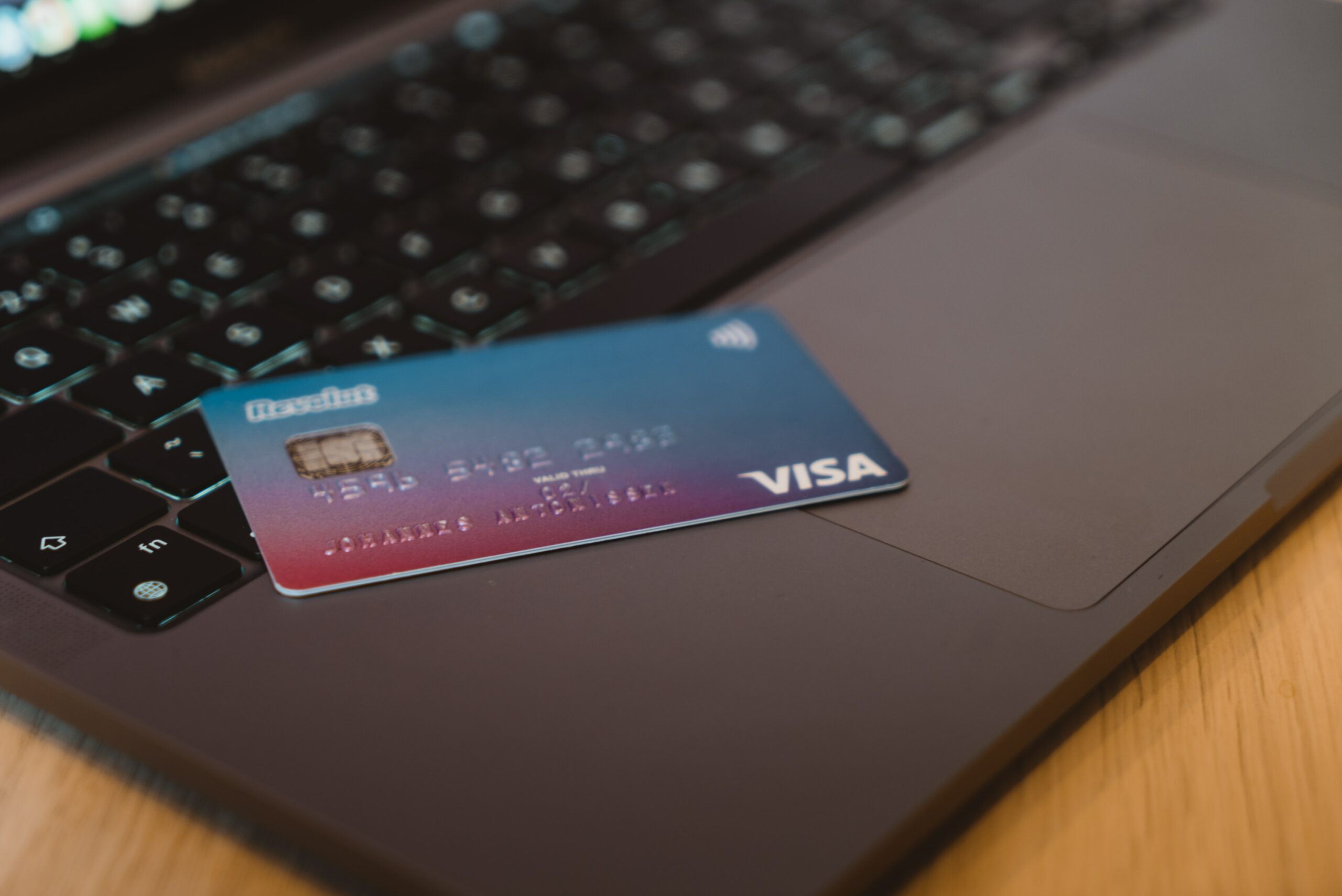Debit Card Disputes
I. Your Guide to Debit Card Disputes
The Electronic Funds Transfer Act (EFTA) was enacted by Congress in 1978. This law was created to protect consumers from electronic banking errors, but it’s most widely known for helping consumers with unauthorized transactions on their bank accounts.
If you’ve ever had an unauthorized transfer happen on your account, and successfully got your funds back, thank the EFTA. Similarly, if you’ve tried to dispute a debit card transaction, know that the resolution process is also guided by the 1978 law.
This article will help you better understand how EFTA affects your financial transactions and how it guides debit card dispute proceedings.

A. Definition of the Electronic Funds Transfer Act
According to Congress, the EFT Act of 1978 aims to protect consumers engaging in Electronic Fund Transfer (EFT) activities. This law includes, but is not limited to, the following interactions:
- Automated teller machines (ATM)
- Point of Sale (POS) terminals
- Telephone Bill payment plans, particularly recurring payments
- Automated clearinghouse systems
- Remote or mobile banking programs
The primary purpose of the EFTA is to protect consumers. You may have had an unauthorized transaction on your debit card and are already familiar with some of the dispute processes. You might know that first, you notify your bank, then they do an investigation, and then make a decision as to whether the charge was authorized or not.
However, did you know that the whole debit card transaction dispute process falls under the EFTA? The banks don’t investigate unauthorized transactions because they really care about their customers – they have to do it because they’re required by law. And if they fail to do so, then they can get penalized for violating the law.
Think of the EFTA as the rule book that banks have to follow when a customer has an unauthorized transaction. Consumer rights attorneys like us ensure that the banks follow that rule book.


B. Why We Need the Electronic Funds Transfer Act
Technically speaking, EFTA provides guidelines for both consumers and financial institutions. This way, consumers are protected at every step of the way.
Imagine the following scenario: your debit card gets stolen and is used by the perpetrator to make purchases. You then check your account and find that transactions have been happening without your knowledge. Without the EFTA, banks and other financial institutions could simply chalk this up as your fault. After all, the card was originally in your possession and your lack of diligence caused the unfortunate incident.
Another simple yet crucial example where the EFTA protects you is when you avail of a monthly subscription. With the proliferation of cashless payments and online streaming services, you’ve probably signed up for a subscription service or two. If you’ve stopped or canceled your subscription, it goes without saying that the charges should also stop. However, if it continues even without your permission, it calls for another dispute charge on debit cards, something provided for by the EFT Act.
Basically, the law tells financial institutions what to do about certain matters such as transaction accounting, dispute management, and error resolutions. This also limits the consumer’s liability from losses stemming from unauthorized transactions.
It is true that the very right to dispute a debit card charge comes from the provisions of this law. However, the rights that protect consumers also come with responsibilities. Customers are expected to immediately report a lost or stolen card, among others. Failure to follow a set of criteria can still leave the customer liable for the losses.
Although the law was designed to protect the common man, remember that it is not absolute. Should you forget, neglect, or simply fail to meet certain prerequisites, you can still end up losing a debit card dispute charge. The EFTA law can be complicated. Contact a DebitCardLawyer.com attorney today for a free consultation.


C. Overview of What the Electronic Funds Transfer Act Does
As a law, the Electronic Funds Transfer Act provides guidelines for financial institutions to follow regarding electronic funds transfer. It also outlines the rights and liabilities of the consumer during the identified activities in the act.
Practically speaking, the list of things you should do and the things your bank should do are all aligned with the provisions stated in this law. Although EFTA doesn’t directly prohibit or punish perpetrators of unauthorized—there are a couple of different laws for that—it limits a consumer’s losses, provided they comply with the conditions stated herein.
II. When Does the Electronic Funds Transfer Act Apply?
Just like the name implies, the EFTA only applies to electronic funds transfers. Most commonly, we think of electronic funds transfers as a debit card transaction (that’s the most popular). But it can include many other types of transactions. Let’s break it down.
“Electronic” means that the fund transfer was made by electronic means. This includes any transfer point-of-sale transfers, ATMs, direct deposits and withdrawals, and transfers initiated by telephone. So when you swipe your debit card at the grocery store, an electronic funds transfer occurs because the point-of-sale terminal that you use sends an electronic signal to your bank telling them to transfer money.
So what’s not considered an electronic funds transfer? Well, things like paper checks aren’t included. Does the EFTA apply to credit cards? The simple answer is ‘no’, it does not. The EFTA only applies to electronic transfers of “funds” – a credit card is not a transfer of funds. Instead, it is an extension of credit.
Interestingly, the word “funds” is not defined. Instead, they define “financial institution” to basically mean any entity that holds an account for another. And then it defines “account” to mean any “asset account” established for personal or family use. This means two things: 1) The electronic transfer doesn’t just have to be money – it can be other assets like cryptocurrency, and 2) The EFTA only applies to personal accounts and not business accounts. Still, most EFTA claims deal with money and not other assets.
A. Definition of an “Unauthorized” Electronic Fund Transfer
Now that we know what an electronic funds transfer is, let’s take a closer look at what makes it an “unauthorized” transfer. It’s pretty straightforward: If you’re not the one who authorized the debit card purchase, then it’s an unauthorized transaction. But what if you give your debit card PIN number to someone else? Or what if you give the actual debit card to a family member and they make a purchase with it? The EFTA says that those are not unauthorized transactions. So make sure you don’t give anyone your debit card or PIN unless you’re comfortable with them making purchases with it. Don’t get hung up on definitions and legal jargon – let the lawyers at DebitCardAttorney.com work for you.

B. Types of Accounts Covered by the EFTA
As the name suggests, EFTA covers electronic forms of transferring funds. It’s worth noting that the act was passed in 1978 in response to increasingly popular electronic systems, with the Congress recognizing this medium’s “potential for substantial benefits.”
Therefore, the following financial transactions are among the most common forms covered by the EFT Act. Should you dispute a debit card charge from the means listed below, you’ve already passed a hurdle:
- Automated Teller Machines (ATM): This includes 24-hour ATMs, the access of which are acknowledged by the EFTA.
- Direct Deposit: Banks offer direct deposit, which requires an electronic network called an automated clearing house, letting consumers deposit funds immediately. It can be used to authorize deposits and is used for payroll purposes, among others.
- Debit Cards; The small plastic card issued by banks to account holders can be used to electronically pay for stuff. If you’re asking, “Can I dispute a charge on my debit card,” the answer is yes by default.
- Pay-by-Phone: Phone calls are recognized means of approving financial transactions, such as payments and transfers. Of course, financial institutions will ask specific questions to confirm your identity before authorizing the transaction.
- Internet: Another popular means of accessing financial information and initiating transfers is through the Internet. Banks have online portals while service-providing websites have dedicated online platforms for facilitating registration, subscription, and payment.
- Electronic Check Conversion (ECC): This process essentially converts a physical paper check into a digital image. It also uses the automated clearing house network. Once the paper check has been converted to an eCheck, the physical copy becomes null and void.

C. What Types of Transactions are Not Covered by the EFTA
The Coverage section of the Act indicates accounts that have an existing agreement for electronic funds transfer services to or from the said accounts. This covers agreements between the consumer and the financial institution, or the consumer and a third party, with notice to the account-holding financial institution.
Regarding coverage, the Act also explicitly lists down some conditions exempted from the provisions of this law, including:
- Fund transfers by check, draft, or other paper-based instruments
- Check guarantee or authorization services that are not directly tied up to electronic debit or credit processes for the consumer.
- Fund transfers using a system primarily used between financial institutions and businesses, such as Fedwire.
- Transfer of funds done to complete a purchase or sale of securities that are under the jurisdiction of the Securities and Exchange Commission (SEC), or commodities regulated by the Commodity Futures Trading Commission (CFTC). The Act excludes transfers overseen by a broker or dealer, or transactions listed as a book-entry form by a federal agency.
- Fund transfers within the same institution, including those handled and automated under an agreement between the consumer and the financial institution.
- Transfers set up through telephone calls, as long as the transfer does not follow a written plan or disclosure that explains or indicates recurring transactions.
There is also an EFT exclusion regarding financial institutions with assets below $100 million at the following end-of-year after the law was signed. Preauthorized transfers to or from accounts at these institutions are considered excluded from EFTA, although they are still subject to certain provisions of the law.
III. The Benefits of the EFTA for Consumers
A. Limiting Liability for Unauthorized Electronic Fund Transfers
Perhaps the most important benefit provided by the Electronic Fund Transfer Act is in limiting customer liability in the event that your debit card gets lost or stolen. Provided that the consumer has reported the loss or theft of their card to the issuing financial institution, the consumer will no longer be held responsible for any unauthorized transaction that follows.
However, again, this is not absolute. There are a couple of criteria that must be followed:
- Limiting loss to $50 if the notification occurs within two (2) business days
- Limiting loss to $500 if the notification occurs between three (3) to fifty-nine (59) days
- Failure to notify within 60 days could serve as grounds to pass liability to the consumer. This could lead to a loss of the money in the account plus the maximum overdraft if applicable.


B. Calculating Notification Deadlines
One thing consumers should know when they dispute a debit card charge is that there are notification timeframes. Fortunately, the timer only starts the moment you realize that your card is lost or stolen, or that you realize that an unauthorized transfer has happened.
You now have two business days to report the incident.
Your two business days start the day after you discovered the loss or the fraudulent transaction and the deadline is on the second day, at 11:59 PM, not at the bank’s closing time. Be aware that banks and other financial institutions may not be ready to receive messages 24/7.
In cases where you do not discover the unsanctioned EFT until the monthly statement arrives, the notification timeframe begins when the statement was sent, and not when you receive it. So the next time you receive your bank statement, make sure to check it immediately and report any discrepancies.
C. How to Notify Your Bank
If you’ve found a potential debit card dispute charge, you must notify your bank immediately. Unfortunately, there are no specific provisions from the EFTA about notification. A specific part of the statute indicates that notice is sufficient when steps have been taken “as may be reasonably required” in the usual course of business.
The above statement means that you can notify the bank through phone, email, or an over-the-counter transaction at a branch. While it’s not necessary to talk to a particular office or employee under the EFTA, make sure that you provide identification data regarding the account and the incident. Take note that some banks might request a written notice after the initial report, usually within ten days.
To ensure a strong case in your debit card transaction dispute, make sure to put your report in writing. You should also keep copies of your correspondences, such as emails and online portal transactions, to be able to track, monitor, and record everything.
D. How the Bank or Card Issuer Must Resolve Errors
We’ve used the word “dispute” in this article to describe unauthorized transactions, but the EFTA actually calls them “errors.” That makes sense because an unauthorized transaction is really an error on your account. The EFTA lays out the process of resolving errors on your account, such as an unauthorized transaction.
First, the EFTA requires you to give your bank notice of the unauthorized transaction. You must do so within 60 days from the date the bank transmits the account statement that contains the error. So if you have an unauthorized transaction on June 15, and your bank sends you the June statement on July 1, then you have 60 days from July 1 (not June 15) to notify your bank of the unauthorized transaction.
Since most of us agree to get statements electronically and not through the mail, make sure you pay attention to these dates. If you notify them too late, not even an attorney can help you dispute the debit card charge.
IV. What Happens if the Bank Doesn’t Comply with the EFTA?
A. Types of Damages Available to Consumers
Obviously, if you win your case you can get your disputed amount back. But did you know that you can actually get more than just the disputed amount? Congress wanted to protect consumers when it passed the EFTA, so it included extra provisions to persuade banks to do the right thing and fairly decide customers’ disputes.
B. Attorney’s Fees and Costs
The EFTA says that the bank must pay your attorney’s fees if you win your case. This is to encourage lawyers to accept small cases where it wouldn’t be worth it to pay a lawyer outright. For example, if you have an unauthorized transaction dispute for $100, it wouldn’t make sense to pay an attorney $300 per hour to help you – it wouldn’t be worth it. Congress recognized this. So instead they said that if the consumer wins their claim, then the bank will reimburse you for your attorney’s fees. Send a message to our attorney today to see if you have a claim for damages.
This means that if your attorney incurs $10,000 in fees to help you with a $100 unauthorized transaction, then the bank must pay $10,100 ($10,000 to your attorney and $100 to you). Banks know that they have to pay attorney’s fees if they lose, so that encourages them to settle.
Now, does this mean that you have to pay your attorney their fees upfront and hope you win and get reimbursed? Usually not. Plenty of consumer rights attorneys (like us) charge a contingency fee. This means that the attorney only gets paid if they win your case. So even if you rack up $10,000 in attorney fees and lose your case, your attorney won’t try to collect the fee from you.
Statutory Damages
On top of getting your disputed money back, you could also get “statutory damages.” That’s just a fancy way of saying “extra money.” Again, Congress wanted a way to dissuade banks from doing shoddy investigations and violating the law. So they basically said that if a consumer wins their case, not only will they get their money back but they’ll also get extra money for their troubles. It’s usually not a whole lot of money. In fact, it’s between $100 and $1,000. The judge (or arbitrator) decides how much you’ll get. So if you’re disputing a $100 unauthorized transaction and you win, the judge could award you the $100 plus $1,000 in statutory damages. Not a bad deal at all.
Now here’s something interesting, so read closely: What happens if the judge finds that the transaction was not unauthorized (meaning that you made it), but the bank still made a procedural violation of the law? Can you still get statutory damages even though you lost on the unauthorized transaction claim? The short answer is ‘yes’. This can be confusing, so let’s look at an example:
Let’s say you are disputing a $50 debit card charge from a gas station that you don’t recognize. You file a dispute with your bank and they deny it, saying that it was an authorized transaction. In their denial letter, they don’t give you an adequate explanation of their findings. Instead, they just say something like, “our investigation showed that the transaction was authorized.”
Your attorney then files a two-count lawsuit against the bank: one count saying that the $50 charge was unauthorized, and another count saying that the bank violated the law by providing you an inadequate explanation of their findings. The judge makes a decision that the $50 was authorized (so you lose that count) but also finds that the bank violated the law by giving you an inadequate explanation. Therefore, you can still get statutory damages (anywhere from $100 to $1,000) even though you lost your unauthorized transaction claim. There are plenty of examples of folks “losing” their case only to get awarded statutory damages. In fact, sometimes the statutory damages can be more than the unauthorized transactions.


C. Class Action Remedies
The EFT Act also particularly acknowledges class-action lawsuits. If a financial institution fails to comply with the EFTA in a systematic manner, a recurring pattern, or as a part of its policy, one of the people who filed a dispute charge on debit card can file for a lawsuit. As a class action, this will represent not only one particular consumer but all other customers who have experienced the same form of negligence or abuse.
One case of a class action remedy for an EFTA violation was filed against a major bank that allegedly mismanaged government benefit prepaid cards during the COVID-19 pandemic. The plaintiffs alleged that the bank committed negligence in investigating a dispute in unemployment benefits accounts even after submitting a formal complaint.

V. Contact a Debit Card Dispute Lawyer
If you’ve experienced trying to dispute a debit card charge, it’s important to remember that you have rights and responsibilities on the matter. As long as you follow your due diligence, know that you don’t have to suffer the losses stemming from fraudulent attempts to use your account. Under the EFTA, consumer interests are protected while providing financial institutions a reasonable space to work with. Despite the points touched on in this article, the law remains subject to varying interpretations and legal loopholes, partly because of the rapidly-changing technology. Unfortunately, some financial institutions will try their best to exploit these gaps and avoid their responsibilities as stipulated in the act.
Don’t wait until it’s too late. Show the bank you mean business and contact DebitCardLawyer.com for a free, no-hassle consultation. We only charge a fee if you win.